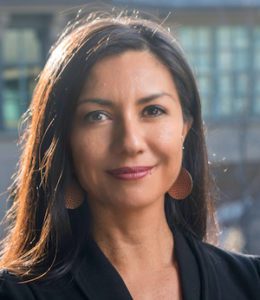A message to the Haas community from Chief Diversity, Equity, and Inclusion Officer Élida Bautista on the significance of Black History Month.


Every February, the U.S. marks Black History Month to celebrate the unique contributions and achievements of African Americans and the Black community in the creation and building of the United States.
In 1926, the historian and scholar Dr. Carter G. Woodson sought to encourage the teaching of Black history in public schools and became the driving force behind the first Negro History Week. It would be celebrated during the second week of February to coincide with the birthdays of Abraham Lincoln and Frederick Douglass, the Black statesman, intellectual and formerly enslaved man who became a leader in the fight to end slavery. The timing was an intentional signal by Woodson to underscore both Black excellence and the role of allies. Following a grassroots movement that stretched across decades and college campuses, President Ford in 1976 provided federal recognition that Black History is American History.
As I reflect on the legacy of this month, I think of the significant impact and imprint made by those who influenced my personal and academic journey, whether as mentors or as researchers, and whose theories continue to inform my work.
We also see the impact in the research coming from our Haas faculty. A new study co-authored by Associate Professor Amir Kermani identifies the deeply structural reasons why Blacks and Latinos profit less from homeownership than whites; two studies by Assistant Professor Drew Jacoby-Senghor and PhD student Derek Brown found that people inadvertently signal prejudice in the language they choose, and that members of the majority misperceive even “win-win” diversity policies as harming them. A study co-authored by Assistant Professor Conrad Miller showed that racial profiling in traffic stops not only causes harm, but makes police less effective.
As I reflect on the legacy of this month, I think of the significant impact and imprint made by those who influenced my personal and academic journey
We all gain from those who boldly name their experiences of exclusion and marginalization. We owe much to those who propose pathways toward liberation and empowerment, recognizing our collective responsibility and mutual benefit as we progress toward equality.
Right now, we are seeing why Black History Month continues to be necessary to our collective learning and understanding. From the challenges to voting rights to the calls to restrict schools from teaching about our nation’s racial past, we are constantly reminded of the words of Fannie Lou Hamer, “Nobody’s free until everybody’s free.” Contributions by leaders, inventors, and cultural icons across a variety of industries continue to be overlooked, omitted from our typical education and public discourse and, at times, vilified. On the first day of this Black History Month, at least 13 historically Black colleges and universities reported bomb threats.
From the challenges to voting rights to the calls to restrict schools from teaching about our nation’s racial past, we are constantly reminded of the words of Fannie Lou Hamer, “Nobody’s free until everybody’s free.”
As you make time to reflect on this heritage month, you will find that the Black community has not only shaped U.S. history and culture, but also global movements. Regardless of your personal identity, my hope for you is that you will find the points of connection in your own journey.
Throughout the month, we encourage you to engage in your own self-directed learning or take advantage of the offerings by Haas students and staff, the Cal Black Alumni Association, and campus to honor the month. The Black Staff Faculty Organization, in partnership with the Haas DEI team, will be co-sponsoring virtual tours of the Black History 101 Mobile Museum throughout the month, with a special lecture planned February 14 from museum curator Dr. Khalid el-Hakim on “The 5th Element of Hip Hop: Using Artifacts to Teach Black History.” Click here to register.
For the Black community, this month creates an opportunity to feel seen and celebrated, and to come together in joy to restore health and wellness, the theme of Black History Month this year. In her message to campus, Dania Matos, UC Berkeley’s Vice Chancellor for Equity & Inclusion, underscored the value of the Fannie Lou Hamer Black Resource Center as a space for community building. One of the center’s offerings is The Well, “where Black folx come to heal,” along with other programming to serve you throughout the year. Here’s to Black History Month, and to Black Futures!